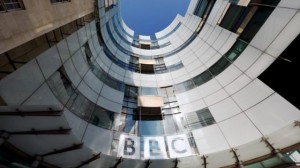
After more than 40 years of operation, DTVE is closing its doors and our website will no longer be updated daily. Thank you for all of your support.
BBC partners with UK universities in major data initiative
 The BBC has launched a five-year research partnership with eight UK universities in a bid to “unlock the potential of data in the media”.
The BBC has launched a five-year research partnership with eight UK universities in a bid to “unlock the potential of data in the media”.
The collaboration is designed to create a body of research insights and prototypes – by combining anonymised BBC data with algorithms and analytics – that can be used to make an impact on the BBC and its audiences.
It will focus on four areas: using data to better understand audiences; exploring what machine learning can teach the BBC about its programmes and services; creating a more personal BBC by designing tools and algorithms to help programme makers with editorial and commissioning decisions; and designing “future audience experiences” based on BBC R&D’s object-based broadcasting concept and new forms of data journalism.
The partnership brings together industry experts from the BBC and data scientists from the Universities of Bristol, Manchester, Edinburgh and Surrey, Imperial College London, Queen Mary University of London, Ulster University and University College London.
This group will also collaborate with media and technology organisations from across the UK, Europe and internationally on a range of projects.
The BBC’s chief technology and product officer, Matthew Postgate, said that the partnership will help the BBC to “break new ground” and make sure it continues to offer “the very best in public service broadcasting well into the future”.
“The BBC has always been at its best when it combines creativity with technology. As we reinvent the BBC, we can see the opportunities that data and machine learning are opening up for us, our creative talent and our audiences,” he said.
Samantha Chadwick, head of partnerships, BBC R&D, added: “Machine learning is going to play an increasingly important role in the world. Together with our partners and funding bodies, we want to apply these advances in data science to the media industry and make a real difference to people’s lives. The partnership will also train a new generation of data scientists on real media problems to create new audience experiences that don’t even exist yet.”


